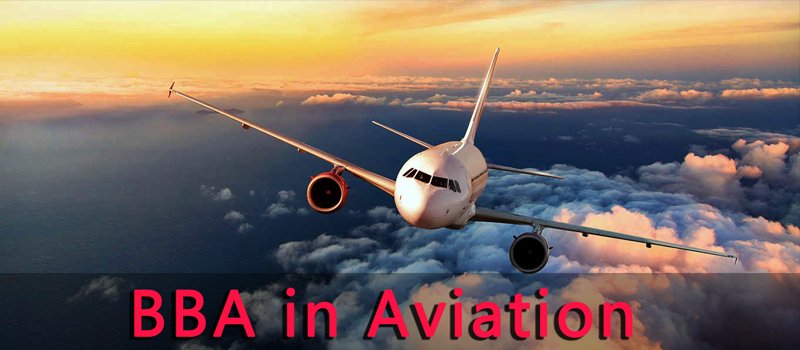
A Bachelor of Business Administration (BBA) in Aviation is a specialized undergraduate program designed to provide students with a comprehensive understanding of the aviation industry, including airline operations, airport management, and related business aspects. Here are the general course details and potential career opportunities associated with a BBA in Aviation
The program typically spans three to four years, divided into six to eight semesters.
Candidates should have completed their 10+2 education (or equivalent) with a focus on commerce, science, or relevant subjects.
Core courses covering the fundamentals of aviation management, including industry regulations and safety protocols.
Understanding the operations and management of airports, including ground services and facilities management.
Studying airline operations, scheduling, and fleet management.
Learning about legal aspects, regulations, and compliance in the aviation industry.
Understanding economic factors and financial management within the aviation sector.
Focusing on passenger service, hospitality, and customer relations.
Hands-on experience in aviation-related settings, such as airports, airlines, or aviation companies.
Some programs may offer elective courses or specializations in areas such as aviation marketing, aviation safety, or aviation technology.
Overseeing the overall operations of an airline.
Managing and optimizing the airline's fleet of aircraft.
Planning and coordinating flight schedules.
Managing the day-to-day operations of an airport.
Overseeing ground handling services, such as baggage handling and passenger services.
Ensuring compliance with safety regulations and implementing safety measures.
Managing regulatory compliance within the aviation industry.
Developing and implementing marketing strategies for airlines or aviation services.
Promoting airline services to customers and businesses.
Ensuring high-quality customer service in the aviation sector.
Handling passenger concerns and improving the overall passenger experience.
Analyzing and implementing technology solutions in aviation operations.
Managing information technology systems within the aviation industry.
Analyzing financial data and trends in the aviation sector.
Optimizing pricing and revenue strategies for airlines.
Offering advice and consultancy services to aviation companies.
Identifying and pursuing business opportunities in the aviation sector.
Starting and managing aviation-related businesses, such as charter services or aviation consulting firms.
Working in government departments related to civil aviation and air transport.
Conducting research in aviation-related fields.
Contributing to the development of new technologies in aviation.